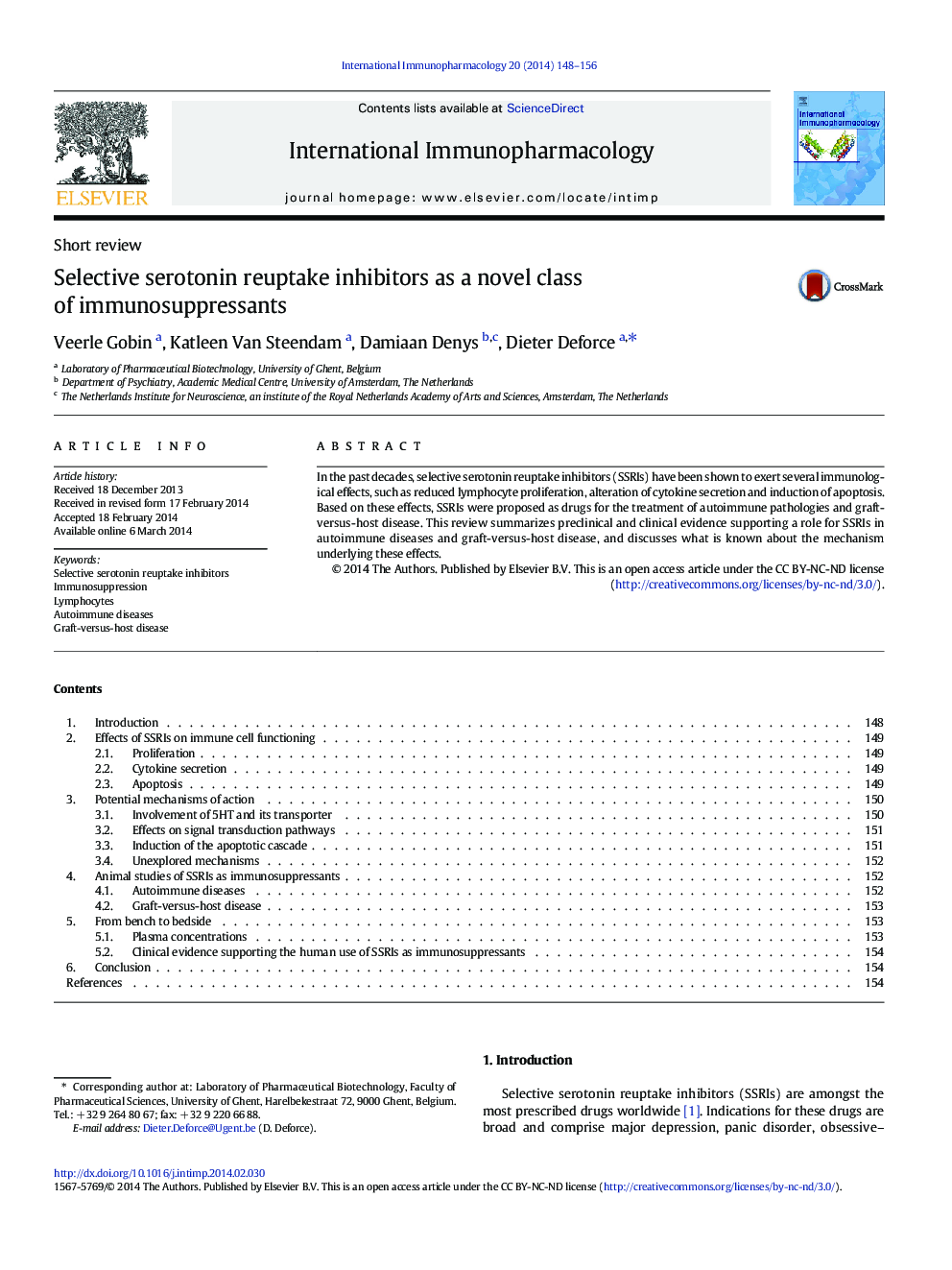| Article ID | Journal | Published Year | Pages | File Type |
|---|---|---|---|---|
| 5832822 | International Immunopharmacology | 2014 | 9 Pages |
Abstract
In the past decades, selective serotonin reuptake inhibitors (SSRIs) have been shown to exert several immunological effects, such as reduced lymphocyte proliferation, alteration of cytokine secretion and induction of apoptosis. Based on these effects, SSRIs were proposed as drugs for the treatment of autoimmune pathologies and graft-versus-host disease. This review summarizes preclinical and clinical evidence supporting a role for SSRIs in autoimmune diseases and graft-versus-host disease, and discusses what is known about the mechanism underlying these effects.
Keywords
Related Topics
Life Sciences
Immunology and Microbiology
Immunology
Authors
Veerle Gobin, Katleen Van Steendam, Damiaan Denys, Dieter Deforce,
